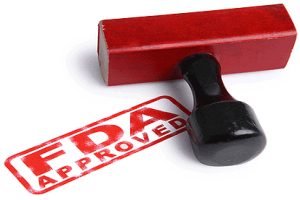
How to Obtain Nigeria’s NAFDAC Registration Certificate for Imported Food Products
HOW TO OBTAIN NIGERIA’S NAFDAC REGISTRATION CERTIFICATE FOR IMPORTED FOOD PRODUCTS
The Lex Artifex Law Office has introduced the Food & Drug (F&D) Helpdesk to assist companies involved in the manufacturing, distribution, exportation, or importation of regulated food and drugs in meeting the requirements set by Nigeria’s National Agency for Food and Drug Administration and Control (“NAFDAC”). This publication provides the guidelines for obtaining the NAFDAC Registration Certificate for the exportation of food products to Nigeria.
WHAT IS IMPORTANT TO NOTE?
-
As per NAFDAC regulation, no food products can be manufactured, imported, exported, advertised, sold, distributed or used in Nigeria except such food product has been registered by NAFDAC in accordance with the provisions of NAFDAC Act CAP N1 (LFN) 2004, and other related subsidiary legislation.
-
The common name of the product and the brand name (where applicable) must be stated in the application.
-
A separate application is required to be submitted for each food product that is to be exported by a manufacturer to Nigeria.
WHAT DOCUMENTS ARE REQUIRED FOR APPLICATION?
The following documents are required for the application for registration with NAFDAC. All the documents must be in the original form and accompanied by two (2) sets of photocopies each.
1. The Applicant’s Declaration notarized by a Notary Public in Nigeria.
2. A Power of Attorney issued by the manufacturer of the food product appointing Lex Artifex Law Firm to act on behalf of the manufacturer and to represent the manufacturer in matters related to the registration of the food product in Nigeria.
-
The Power of Attorney is required to be signed by the managing director, general manager, chairman or president of the company;
-
The Power of Attorney must state the names of the food products sought to be registered with NAFDAC;
-
The power of attorney shall indicate ‘Authority to register the product with NAFDAC’.
-
The ownership of the Brand name(s)/Trademark must be clearly stated.
-
The Power of Attorney must be notarized by a Notary Public in the country of manufacture.
-
The Power of Attorney must be valid for at least five (5) years.
3. Certificate of Manufacture and Free Sale. The manufacturer must show evidence that the company is licensed to manufacture food products and that the sale of the product does not constitute a contravention of the laws of that country, i.e. Free Sale Certificate (Certificate of Manufacture and Free Sale). The Free Sale Certificate shall have the following features:
-
Issued by the relevant Health/Regulatory body in the country of manufacture;
-
Indicate the name of the manufacturer and the products to be registered;
-
Be authenticated by the Nigerian Embassy or High Commission in the country of origin. In countries where no Nigerian Embassy exists, any Commonwealth or ECOWAS country can authenticate the document.
4. Comprehensive Certificate of Analysis. The certificate of analysis must be presented on a letter-headed paper of the Quality Control Laboratory where the sample was tested/evaluated and should contain the under listed information:
-
The brand name of the product
-
The batch number of the product
-
The manufacturing and expiry dates
-
The name, designation, and signature of the analyst
5. Evidence of business incorporation of the importer company in Nigeria.
6. Evidence of Registration of Brand Name with Trademark Registry in the Ministry of Industry, Trade and Investment. This should be registered in the name of the owner of the Trademark/Brand name as the case may be.
7. Label or artwork of the product
8. Letter of Invitation to Good Manufacturing Practice (“GMP”) Inspection: A letter of invitation to inspect the factory abroad shall be written by the manufacturer and shall state the following:
-
Manufacturer Information: Name of Company, full location address of factory (not administrative office address), e-mail, and current phone no. Details (name, phone number, and email) of contact person overseas.
-
Local Agent Information: Name of company, full location address, functional phone no., e-mail address. Details (name, phone number, and email) of contact person in Nigeria. Names(s) of product(s) for registration.
ISSUANCE OF IMPORT PERMIT
Upon the successful screening of documentation and review of supporting documents, an Import Permit shall be issued after which the product will be submitted for vetting.
SUBMISSION OF PRODUCTS FOR LABORATORY ANALYSIS
After successful vetting of product labels, laboratory samples are submitted. The following documents are required;
-
Evidence of payment to the Agency
-
Certificate of analysis
-
Evidence of submission for vetting
PRODUCT APPROVAL MEETING
-
Upon the satisfactory documentation review, the satisfactory GMP inspection of the production facility, and the satisfactory laboratory analysis of the product, the products shall be presented at the Approval Meetings.
-
For products labels with compliance issues, compliant artworks may be submitted with a commitment letter from the manufacturer (stating that the commercial products will be in compliance).
ISSUANCE OF NOTIFICATION
-
For product approved at the meeting, a Notification of the Registration or Listing of the Product shall be issued to the applicant.
-
For the disapproval of a product at the Meeting, a Compliance Directive shall be issued to the applicant.
LABELING GUIDELINES FOR IMPORTED FOOD PRODUCTS
Labeling by the manufacturer must be informative, accurate and in compliance with the Agency’s Food Labelling Regulations and any other relevant Regulations.
COST OF REGISTRATION WITH NAFDAC
For information on the applicable tariffs and the cost for food and drug registration in Nigeria, contact us with the description or image of the product(s) sought to be registered, and we will send the cost estimates to you. Email at lexartifexllp@lexartifexllp.com, WhatsApp +234 803 979 5959.
THE TIMELINE FOR REGISTRATION
-
The timeline for product registration is one hundred and twenty (120) business days (i.e. from when the application is accepted by NAFDAC to when the Registration Number is finally issued)
-
The clock stops running when an issue is raised by NAFDAC for compliance.
